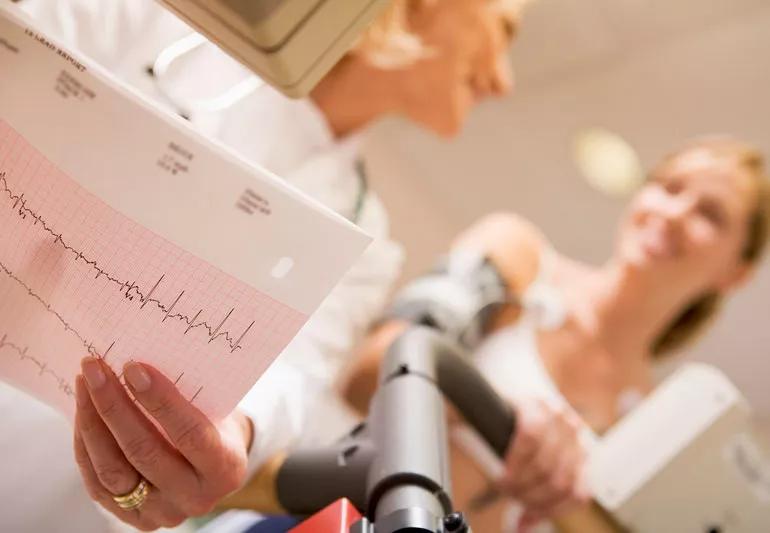Advertisement
Results from a new Cleveland Clinic study

How old does your birth certificate say you are? How old do you feel? The best predictor of how long you’ll live? It’s actually a stress test’s ‘estimated age.’
Advertisement
Cleveland Clinic is a non-profit academic medical center. Advertising on our site helps support our mission. We do not endorse non-Cleveland Clinic products or services. Policy
Cleveland Clinic researchers have developed a tool to calculate a person’s physiological age based on their exercise performance during a stress test. They found it’s a better predictor of how long they’ll live vs. their actual age.
Researchers studied 126,356 patients who were referred for exercise treadmill testing at Cleveland Clinic between Jan. 1, 1991, and Feb. 27, 2015. They evaluated whether a patient’s estimated age based on their exercise performance is a better predictor of mortality than their chronological age.
The average age of study participants was 53.5 years old and 59% were male. The paper was published in the European Journal of Preventive Cardiology.
The study found that the estimated age based on exercise performance was better in predicting survival than the patients’ actual age. This held true for both men and women. Among those included, 55% of males and 57% of females between the ages of 50 and 60 years had an estimated age younger than their chronological age.
The formula to estimate physiological age was developed based on exercise variables that were collected at the time of the patient’s stress test.
The study further confirmed that all exercise variables included in estimating physiological age were powerful predictors of survival, including exercise capacity, chronotropic competence (heart rate response to exercise) and heart rate recovery.
“Physiological age based on your exercise performance on stress testing is an even better predictor on how long you will live,” says cardiologist and study’s first author Serge Harb, MD.
The key take-home message for patients is to exercise more ― and for healthcare providers to use this physiological age as a way to motivate their patients to improve their exercise performance. For the first time, we can quantify the impact of your performance level on a treadmill test in adding or subtracting years from your actual age.
According to the CDC, heart disease is the leading cause of death among women and men in the United States. Stress testing is a common diagnostic tool for cardiovascular disease.
It’s important to note that the study analyzed findings from a large population. You should always check with your healthcare provider before starting an exercise program.
Advertisement
Learn more about our editorial process.
Advertisement

Factors like temperature, energy levels and sleep quality play a role in determining whether working out in the morning or evening is best for you

Obesity, age and preexisting heart conditions can all raise your risk of cardiovascular disease during pregnancy

Xylitol in processed food can increase risk of heart attack and stroke — but there’s no danger in xylitol in oral care products

If your provider has ruled out a serious cause, you can treat chest pain at home with antacids, inhalers or anti-inflammatory medications

Walking is a great goal, but how many steps are best for you depends on factors like your fitness level and age

Research shows a strong association between rheumatoid arthritis and heart issues

Eating more natural, whole foods can lower your risk of heart and cardiovascular diseases

First things first — slowly sit or lie down

Focus on your body’s metabolic set point by eating healthy foods, making exercise a part of your routine and reducing stress

PFAS chemicals may make life easier — but they aren’t always so easy on the human body

While there’s little risk in trying this hair care treatment, there isn’t much science to back up the claims